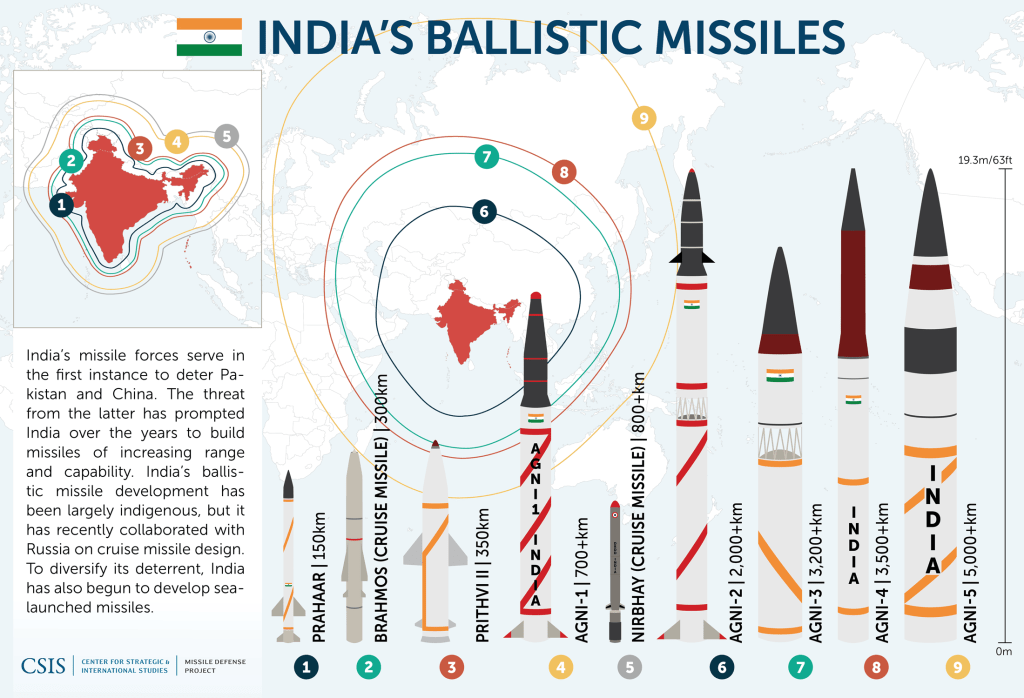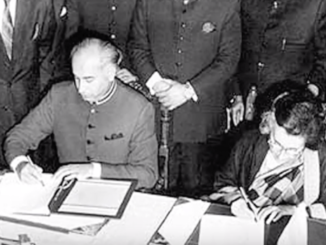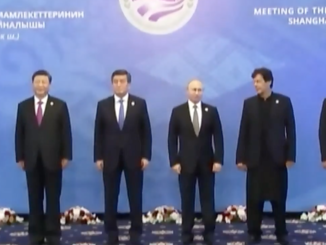By Hemant Kumar Rout| Express News Service | Published: 31st December 2018 02:15 AM
BHUBANESWAR: 2018 was a landmark year for the country’s elite Defence Research and
Development Organisation (DRDO) as it helped enhance the credibility of India’s nuclear
deterrence with most of the indigenously developed missiles and weapon systems
tasting success during both experimental and user trials.
The DRDO and armed forces conducted tests of 20 missiles, including two newly
developed systems and advanced version of Pinaka rocket. The missiles, which were put
to tests, are Agni-I, Agni-II, Agni-IV, Agni-V, Prithvi-II, Dhanush, BrahMos, Prahar, Astra,
Quick Reaction Surface-to-Air Missile (QRSAM), Stand off anti-tank (Sant) guided missile,
AAD and PDV interceptors, anti-tank guided missile Helina, submarine-launched B-05
and Man-Portable Anti Tank Guided Missile (MPATGM).
Induction of submarine launched ballistic missile B-05, maiden trials of new surface-toair
missile, powered by Solid Fuel Ducted Ramjet (SFDR) and MPATGM, completion of
first deterrence sea patrol by nuclear powered Made-in-India submarine INS Arihant
and final pre-induction trial of most potent long range missile Agni-V were significant
achievements.
India’s defence preparedness got a boost with the induction of B-05. Kept under wraps
for years, the missile was secretly test-fired back-to-back from indigenously built
nuclear-powered submarine INS Arihant off Visakhapatnam coast on August 11 and 12
after being inducted in the armed forces. This makes India the sixth nation in the world
to have a credible triad of nuclear-enabled missiles that can be fired from land, air and
undersea.
While 5,000-km range nuclear capable missile Agni-V was successfully flight tested
thrice, including once in depressed trajectory and once in lofted trajectory this year
making it ready for serial production, four outstanding night trials of three missiles not
only demonstrated repeatability and robustness of the weapons, but also proved the
ability of the armed forces to fire the missiles any time and under any circumstances.
Many milestones were achieved as more than 40 tests of the missiles were successful
barring the trial of QRSAM from the Integrated Test Range (ITR) off Odisha coast. The
missile test fired on April 9 failed to deliver desired results. In a major breakthrough in
missile technology, the DRDO on May 30 successfully carried out the first test of a new
surface-to-air missile with nozzle less booster.
The missile, powered by SFDR, is the fastest in its class and capable of destroying fast
moving aerial targets. In a first, supersonic cruise missile BrahMos was test fired with
life extension technology from Chandipur range and with Gen-Next new homegrown
seeker from Pokhran range on May 21 and March 22 respectively. Both the tests
achieved roaring successes. Test firing of Six rounds of air-to-air missile Astra fired from
Sukhoi-30 MKI aircraft between September 26 and October 3 were highly satisfactory
paving its way for induction.
First test of the third generation MPATGM was conducted from Ahmednagar range in
Maharashtra on September 15. The missile, best in its class in the world, is expected to
replace second generation French origin anti-tank guided missile Milan and Soviet semiautomatic
wire-guided missile Konkur, which are in service with the army. Indigenously
designed and developed guided bombs Smart Anti Airfield Weapon (SAAW) and Helina
were successfully tested at separate firing ranges in Rajasthan between August 16 and
19.
The SAAW integrated with a live warhead destroyed the targets with high precision.
Remarkable test results of Sant guided missile’s air to ground version at Pokhran also
boosted the morale of Indian Air Force (IAF). The missile, an upgrade of Helina, has a
range of 15-20 km and is guided by an Infra-red Imaging Seeker operating in the Lock on
Before Launch mode. It is one of the most advanced anti-tank weapons in the world.
On November 5, Prime Minister Narendra Modi announced INS Arihant, India’s first
nuclear-powered submarine, to have completed its first deterrence patrol. The 6,000-
tonne submarine developed under a highly classified programme proved to be a fully
functional underwater ballistic missile delivery platform.
In a first-of-its-kind exercise code-named CROSS BOW-18, the IAF conducted tests of
combined guided surface-to-air missiles from the Air Force Station at Suryalanka in
Andhra Pradesh from December 5 to 8. Four different classes of missiles – Akash,
Spyder, OSA-AK and man-portable infrared homing missile Igla were successfully testlaunched
during day and night in an integrated networked environment.
Four consecutive successes during night trials were great achievements for the armed
forces this year. The missiles included exo-atmospheric (outside the atmosphere)
interceptor PDV, which destroyed the target fired from a ship mimicking an enemy
weapon, at an altitude of above 100 km. Three other tests including two of Prithvi-II and
one of Agni-I were carried out in just over one month. Clearance from the Ministry of
Environment, Forest and Climate Change for setting up a new missile test launch facility
in Krishna district of Andhra Pradesh also brought cheers for the DRDO. The test facility
will be built at a cost of nearly Rs 1,000 crore in the 154.4-hectare area.
Dr G Satheesh Reddy appointed DRDO Chief Distinguished Scientist Dr G Satheesh
Reddy was appointed as Chairman of DRDO and Secretary of Department of Defence
R&D in August. From a young navigation scientist and system manager he rose steadily
to become Scientific Adviser to Defence Minister for over three years before being
selected for the coveted post. He is known for his significant contributions towards
indigenous design, development and deployment of diversified missiles and strategic
systems, guided weapons and avionics technologies.
He led the design and development of a wide range of tactical and strategic missile
systems and invigorated the BMD programme and developed the mission critical
technologies for long range Agni-V missile. Defence Production Corridor Government of
India took policy decision to set up two Defence Production Corridors, one each in Uttar
Pradesh and Tamil Nadu.
These would go a long way in making India self-reliant in defence production through
‘Make in India’ initiatives. All-women crew It was also a year of another milestone for
women empowerment in the country when the first-ever all-women crew
circumnavigated the globe in an indigenously built 56-foot Indian Navy Sailing Vessel –
INSV Tarini.
Led by lieutenant commander Vartika Joshi, the captain, the crew comprising lieutenant
commanders Pratibha Jamwal, P Swathi, and lieutenants S Vijaya Devi, B Aishwarya and
Payal Gupta completed their 254-day circumnavigation of the globe on May 21. Mid-air
refuelling India joined the elite group of nation which have developed the Air-to-Air
refuelling system for military class aircraft when Light Combat Aircraft (LCA) ‘Tejas’
successfully completed mid-air refuelling trial by wet (actual) engagement, transferring
1,900 kgs fuel from IAF IL78 mid-air refuelling tanker on September 10.
Portable Diver Detection Sonar (PDDS) DRDO is involved in the design and development
of a PDDS system that is capable of detecting small targets such as divers and diver
delivery vehicles in and around harbours. It will be deployable and retrievable as and
when required. While PDDS deployment system has been developed, field evaluation of
the deployment system will be by early 2019.
Advanced Light Weight Torpedo (ALWT) ALWT is an anti-submarine torpedo launched
from ship, helicopter or fixed wing aircraft. It has dual speed capability and endurance
of 25 km at low speed (25 knots) and 12 km at high speed (50 knots). Discharge test of 70
kw battery was conducted with full torpedo assembled. Static test was conducted at sea
off Vizag to prove operation of recovery aids used in ALWT – STRS, IPRS, Noise maker
and BSAT.
The automated electrical firing of it from single tube launcher and dynamic sea trials
were conducted wherein torpedo made the full run as permission sequence. Unmanned
Aerial Vehicle (UAV) – TAPAS BH Medium altitude long endurance multi-mission UAV
TAPAS-BH is being developed with an endurance of 24 hours to carry out the
intelligence, surveillance and reconnaissance roles for the three Armed Forces.
It has been designed to operate at 30,000 ft above mean sea level altitude and is capable
of carrying electronic warfare and electro-optic and synthetic aperture radar payloads.
As many as 63 taxi trials and 25 user configuration flight trials have been completed so
far. New Generation Anti-Radiation Missile (NGARM) DRDO is involved in the design
and development of NGARM having a range of 100 km. AKU-58 launcher after suitable
modification will be used for missile integration on Su-30 MKI aircraft. Successful static
firing of integrated P-I & P-II rocket motor was conditioned at high and low temperatures
in June and July respectively.
Captive flight trials were also successfully conducted in September. Other developments
Maiden flight of indigenously developed Automatic Flight Control System (AFCS)
integrated on LCH has been conducted successfully by Hindustan Aeronautics Limited
(HAL) on January 31. The flight was of 20 min duration and engagement of this system
was flawless throughout the flight. Third submarine of the Scorpene/Project-75 (Karanj)
was launched by Mazagon Dock Shipbuilders Limited on the same day.

Fllyiing hiigh
Date Name of Missile Test facility Result
Jan 18 Agni-V Kalam Island/Odisha Successful
Feb 6 Agni-I Kalam Island Successful
Feb 7 Prithvi-II Chandipur/Odisha Successful
Feb 20 Agni-II Kalam Island Successful
Feb 21 Prithvi-II (night trial) Chandipur Successful
Feb 23 Dhanush Ship off Odisha coast Successful
March 22 BrahMos Pokharan/Rajasthan Successful
April 9 QRSAM Chandipur Partially Successful
May 10-18 Sant Chandan/Rajasthan Successful
May 21 BrahMos Chandipur Successful
May 30 SFDR Chandipur Successful
May-30-31 Pinaka (MK-II) Chandipur Successful
June 3 Agni-V Kalam Island Successful
July 16 BrahMos Chandipur Successful
Aug 2 AAD Kalam Island Successful
Aug 11-12 B-05 INS Arihant Successful
Aug 16-18 SAAW Chandan Successful
Aug 19 Helina Pokharan Successful
Sep 15-16 MPATGM Ahmednagar/Maharashtra Successful
Sep 20 Prahar Chandipur Successful
Sep 23 PDV (night trial) Kalam Island Successful
Sep 26 Astra Su-30MKI Successful
Oct 6 Prithvi-II (night trial) Chandipur Successful
Oct 8 QRSAM Chandipur Successful
Oct 30 Agni-I (night trial) Kalam Island Successful
Nov 9 Dhanush Ship off Odisha coast Successful
Nov 24 Sant Pokharan Successful
Dec 5 – 8 Akash, Spyder Suryalanka/AP Successful
Dec 10 Agni-V Kalam Island Successful
Dec 23 Agni-IV Kalam Island Successful
![]()




Be the first to comment